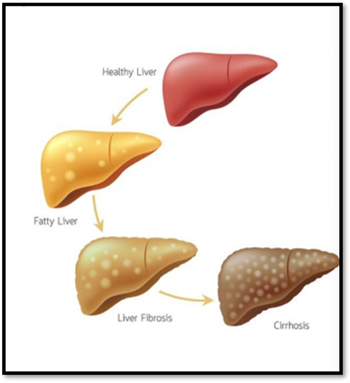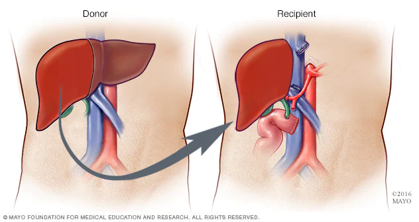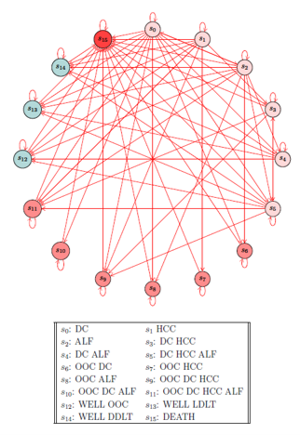
FIG. 1:
Stages of Liver Damage
i) Fibrosis or cirrhosis arising from an unhealthy liver. Decompensated cirrhosis (DC) refers to an acute deterioration in liver function in a patient with cirrhosis
ii) Acute and acute-on-chronic liver failure (respectively: ALF and ACLF)
iii) Hepatocellular carcinoma (HCC) or liver cancer
OPTION 1: Deceased donor liver transplant (DDLT)
DDLT takes place within a day of the organ harvest to minimize further deterioration of the donated organ
OPTION 2: Living donor liver transplant (LDLT)
LDLT typically involves a liver donor who volunteers and a liver recipient (usually a close relative)
Due to the elective nature of LDLT, the procedure can take place at a time which optimizes the recovery process for both donor and recipient

FIG. 2:
Liver Transplant
Image Source: Mayo Clinic

FIG. 3:
Allowable State Transitions for Liver Transplant Patients
i) The unique initial states of all patients on the liver transplant waitlist (e.g. DC, ALF, ACLF, HCC, etc), including disease-combinations
ii) The possible states into which these patients can transition (e.g. out of transplant criteria or OOC, recovered or WELL)
iii) Death (DEATH) as the sole absorbing state of our model
Thereafter, we must accept the following Markovian Assumption with respect to progression from one state si to another state sj:
There is no memory of prior states and each transition depends only on the current state
Last but not least, we must identify all allowable state transitions, including self-loop transitions and transitions into DEATH as the absorbing state
i) NUH (Singapore)
ii) SGH (Singapore
iii) Queen Mary Hospital (Hong Kong)

FIG. 4:
Logos of Hospital Partners